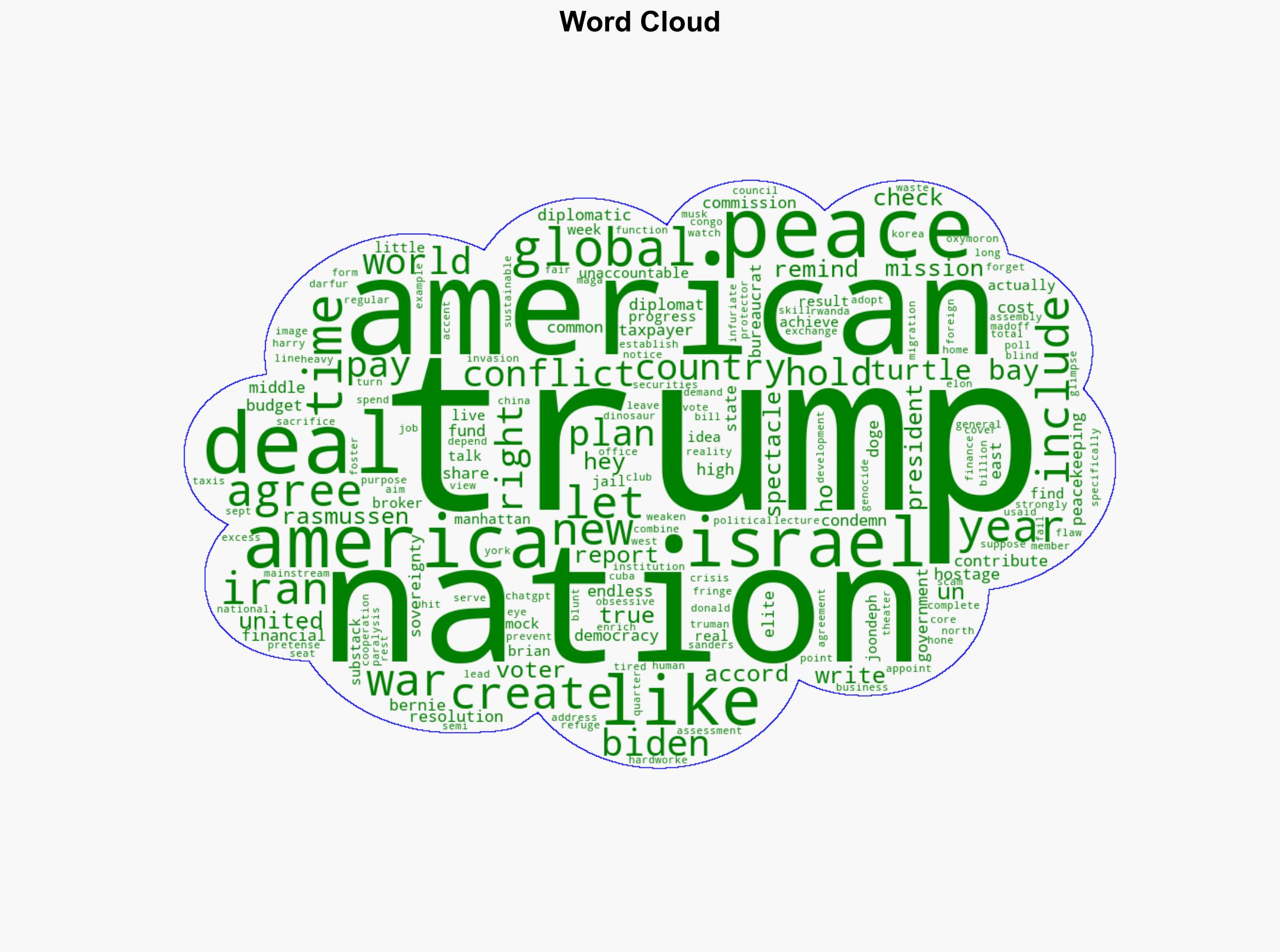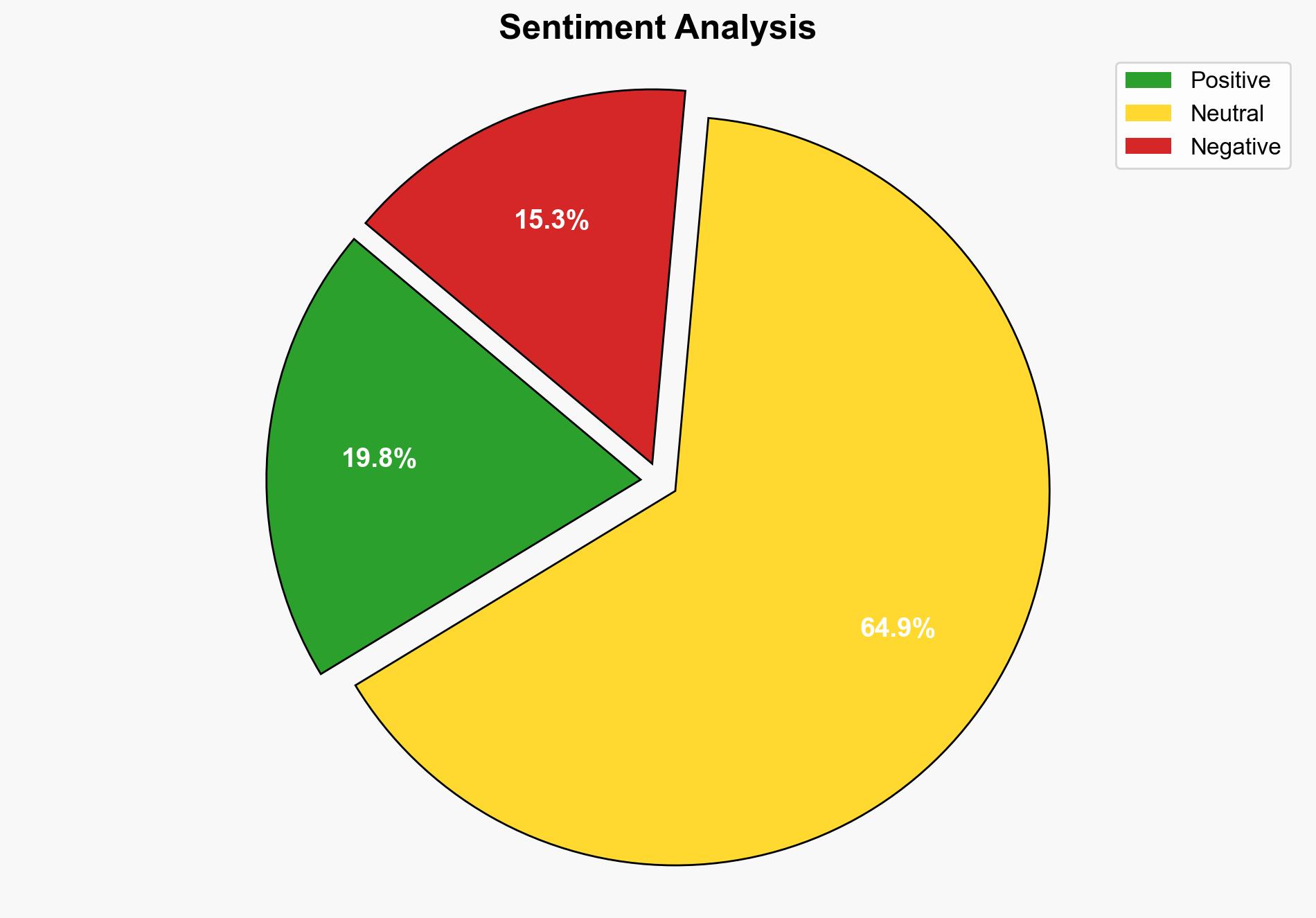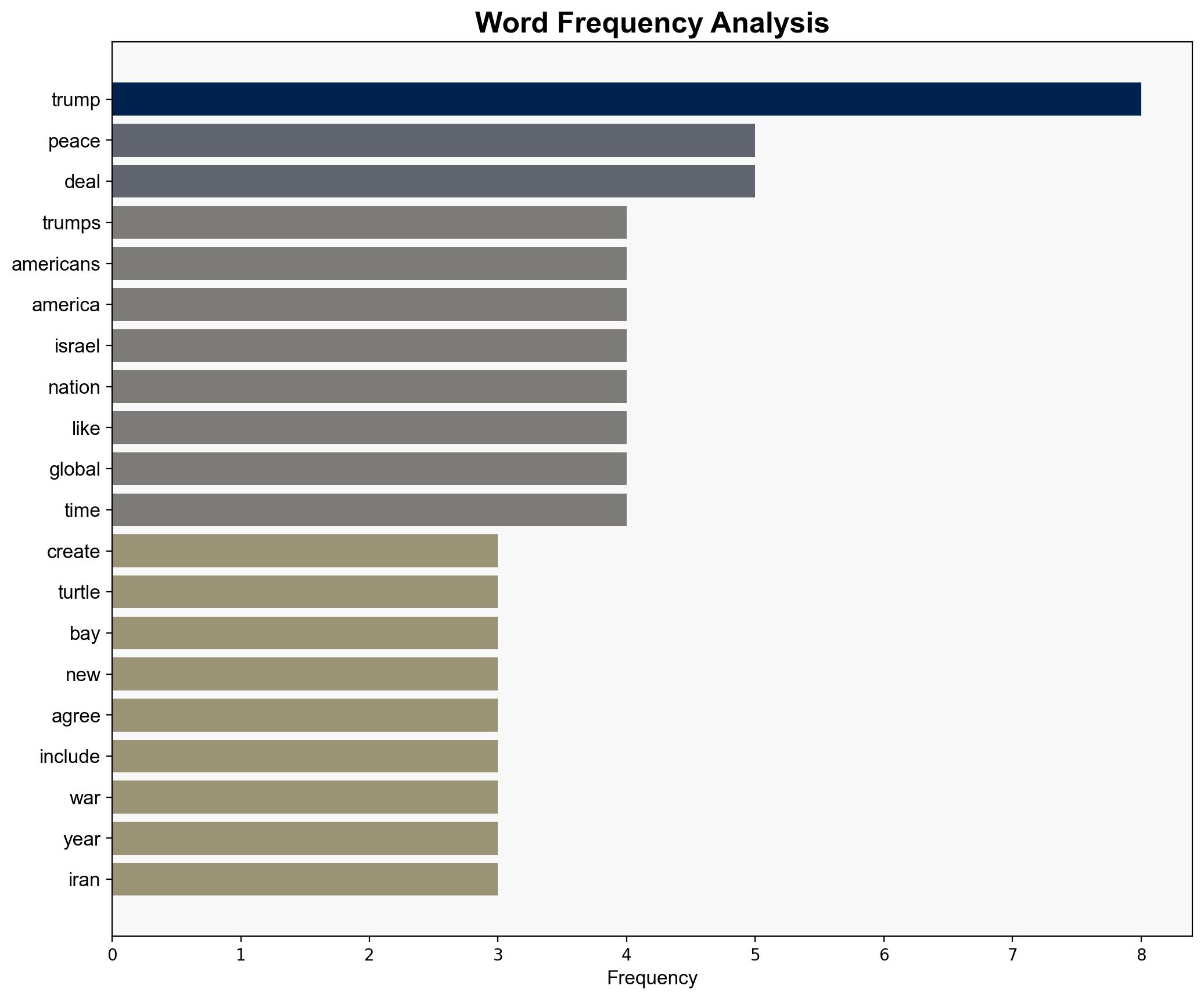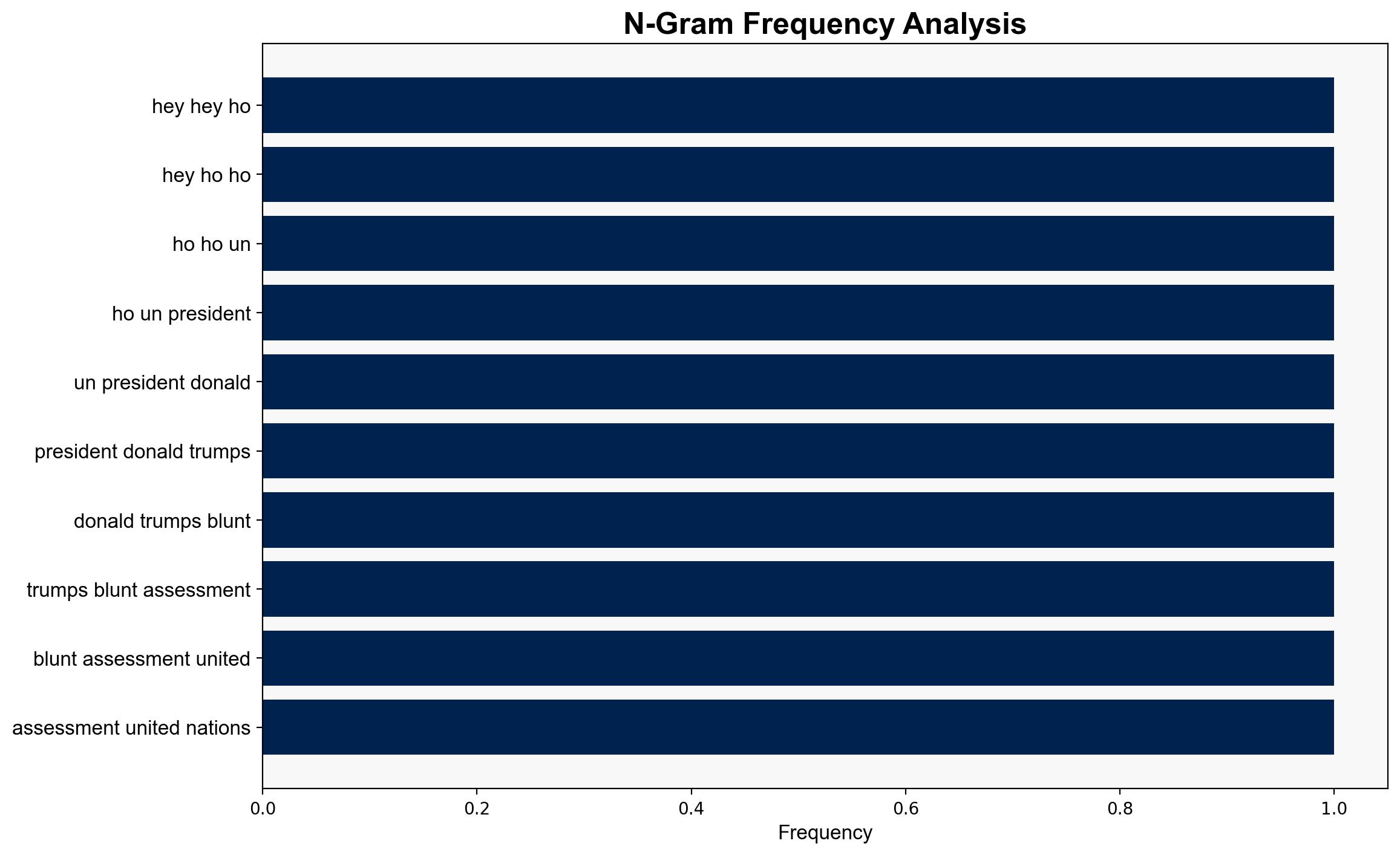Hey Hey Ho Ho – The UN has Got to Go – Americanthinker.com
Published on: 2025-10-20
Intelligence Report: Hey Hey Ho Ho – The UN has Got to Go – Americanthinker.com
1. BLUF (Bottom Line Up Front)
The analysis suggests a moderate confidence level in the hypothesis that the United Nations (UN) is perceived by some American political factions as ineffective and financially burdensome, leading to calls for reform or withdrawal. The recommended action is to engage in diplomatic efforts to address these criticisms while reinforcing the strategic benefits of continued UN participation.
2. Competing Hypotheses
1. **Hypothesis A**: The UN is primarily seen as an ineffective institution that fails to fulfill its mission, leading to significant American public and political dissatisfaction. This perception is driven by its perceived inability to address global conflicts and its financial demands on the U.S.
2. **Hypothesis B**: The criticism of the UN is a politically motivated narrative used by certain factions to justify a broader agenda of reducing international commitments and focusing on national sovereignty.
Using the Analysis of Competing Hypotheses (ACH) 2.0, Hypothesis A is better supported by the data, as evidenced by specific criticisms of the UN’s handling of international crises and financial inefficiencies. Hypothesis B lacks direct evidence in the provided text but remains plausible given the political context.
3. Key Assumptions and Red Flags
– **Assumptions**: The analysis assumes that the criticisms of the UN are based on factual assessments of its performance. It also assumes that public opinion aligns with the views expressed in the source.
– **Red Flags**: The source may exhibit bias, as it appears to align with a particular political viewpoint. The lack of counterarguments or acknowledgment of the UN’s successes is a potential blind spot.
– **Inconsistent Data**: The text does not provide quantitative data to support claims about public opinion or the financial burden of the UN.
4. Implications and Strategic Risks
– **Geopolitical Risks**: Withdrawal or reduced participation in the UN could diminish U.S. influence in international diplomacy and weaken multilateral efforts to address global issues.
– **Economic Risks**: Potential economic implications include the loss of trade opportunities facilitated by UN frameworks and increased costs of unilateral international engagement.
– **Psychological Risks**: A narrative of UN ineffectiveness could erode public trust in international institutions and foster isolationist sentiments.
5. Recommendations and Outlook
- Engage in diplomatic dialogue to address and reform perceived inefficiencies within the UN, focusing on transparency and accountability.
- Communicate the strategic benefits of UN participation to the public to counter isolationist narratives.
- Scenario Projections:
- **Best Case**: Successful reforms lead to increased efficiency and restored public confidence in the UN.
- **Worst Case**: U.S. withdrawal leads to diminished global influence and increased geopolitical instability.
- **Most Likely**: Continued criticism prompts gradual reforms, maintaining U.S. involvement with some public skepticism.
6. Key Individuals and Entities
– Donald Trump
– Antony Blinken
– The United Nations
– American political factions
7. Thematic Tags
national security threats, geopolitical strategy, international diplomacy, public opinion




